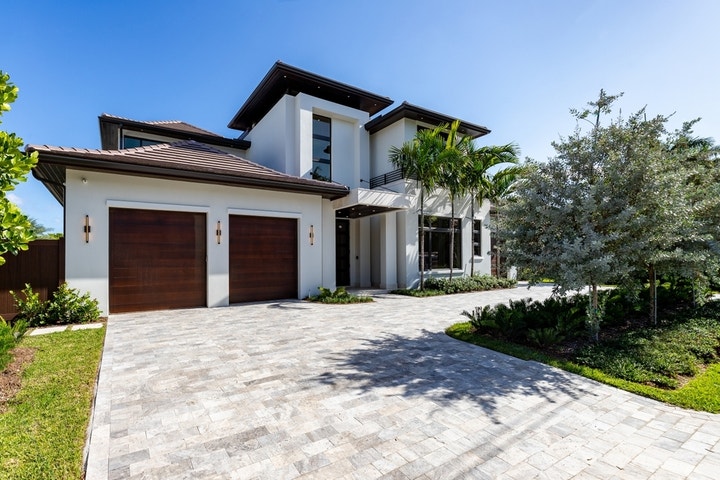Florida Housing Market Faces Biggest Price Decline in Over a Decade: Signs of a Real Estate Correction?
The Florida real estate market is currently experiencing its most significant price decline in 13 years, sparking concerns over whether a larger housing market correction is underway. Once considered a stronghold for steady home value growth, Florida now faces challenges including high-interest rates, rising insurance costs, and decreasing demand, signaling potential shifts in the Sunshine State’s housing landscape.
Why Florida’s Housing Market is Cooling Down
Several factors have contributed to this downturn:
- Rising Interest Rates: Mortgage rates have surged, making loans less affordable and dampening buyer enthusiasm.
- Increased Insurance Costs: Following stricter building safety regulations, especially post-Surfside condominium collapse, insurance premiums are climbing.
- Housing Oversupply and Weak Demand: Cities such as Cape Coral, North Port, Tampa, and Jacksonville are witnessing a growing inventory of homes with significant price reductions.
Price Cuts Across Florida’s Metro Areas
According to Realtor.com, many Florida metros are seeing a wave of price adjustments:
- Over 33% of homes in North Port and Tampa experienced price cuts in April.
- Cape Coral has seen cuts in more than 28% of listings.
- Jacksonville follows closely with over 27.5% of homes dropping prices.
These statistics illustrate a clear trend of sellers adjusting expectations in response to less competitive market conditions.
Breaking Down the Market Dynamics: Condos and Single-Family Homes
Redfin’s Senior Economist Sheharyar Bokhari explains the nuanced situation:
“The condos drive a lot of it, but it seems that the single-family market is also weakening. The pandemic rush to Florida is dying down, and with mortgage rates being so high and staying high, it makes it really unaffordable for people paying for those high prices.”
This highlights that while condominiums are particularly affected, single-family homes are not immune to the market slowdown.
Impact of Condo Market Challenges
Florida holds nearly 20% of all U.S. condominiums, many of which are aging:
- About half of Florida’s condos are over 30 years old, based on data from the University of Florida Bergstrom Center for Real Estate Studies.
- The tragic 2021 Surfside building collapse has led to stricter building safety standards and increased costs for insurance and maintenance reserves.
Brad O’Connor, Chief Economist at Florida Realtors, noted:
“If these buildings are subject to reserve requirements, buyers want to make sure they’re getting into a situation where the condos have their act together. Whether it’s the lenders or the buyers themselves, we’ve seen a slowdown in condo demands.”
Escalating Homeowners Association (HOA) Fees Amplify Concerns
HOA fees have surged across many Florida cities, aggravating affordability challenges:
- HOA fees increased 17.2% year-over-year in several cities ending July 2023, the steepest rise among 43 U.S. metros studied by Redfin.
- Orlando and Fort Lauderdale recorded increases near 16–17%.
These rising fees reflect the inflation in maintenance and reserve requirements, further impacting condo owner budgets.
Legislative Solutions: House Bill 913 Offers Hope for Condo Owners
Recognizing the financial strain on condo residents, Florida lawmakers are considering House Bill 913:
- the Bill aims to provide financial relief to condo owners, balancing cost concerns without compromising building safety.
- Senator Jennifer Bradley emphasized:
“This bill comes from a lot of listening to owners talk about how they know their building needs to be safe but pleading that the process be fair and workable.”
Governor Ron DeSantis will decide whether to sign the bill into law on or after July 1, 2024.
Regional Market Snapshots: West Coast and East Coast Florida
- West Coast Impact: Cape Coral and North Port-Sarasota listings increased by 50% compared to the previous year, signaling oversupply.
- East Coast Slowdown: Orlando experienced a 0.9% sales decline, and Jacksonville saw a 2.2% drop.
Bryan Carnaggio, a Redfin Premier Agent, observed:
“People used to move to Florida partly because they could get a deal. Now, people can’t afford to move here. The first questions from out-of-staters are, ‘How bad are the hurricanes? How high are insurance rates?’”
What This Means for Buyers and Sellers
For Buyers:
- High mortgage rates mean affordability challenges persist.
- Consider the increasing HOA fees and insurance costs, especially for condominium ownership.
- Due diligence on building conditions and financial health of HOAs is critical.
For Sellers:
- Adjust pricing expectations amid increased inventory and market softness.
- Transparency about insurance costs and building compliance will build buyer trust.
Conclusion: Is a Florida Housing Market Collapse Imminent?
While Florida is clearly undergoing a correction marked by the steepest price declines in over a decade, experts emphasize this is more of a market adjustment than a full-scale collapse. The combination of rising costs, increased regulations, and slowing demand is reshaping the landscape, urging both buyers and sellers to navigate carefully.
For more insights into the evolving housing market, visit the official Florida Realtors site and stay updated on legislative developments impacting real estate.
Further Reading:


